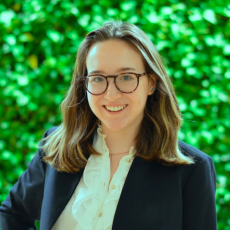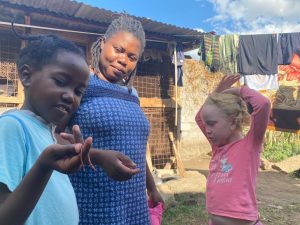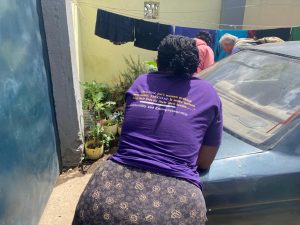In honor of the Barbie movie coming out last week, I want to take the time to reflect on the power of women.
This past weekend, I accompanied Stella and Shield of Faith’s members to Nairobi’s Industrial Area, where each woman demonstrated her embroidery skills in the hope of obtaining employment in a textile company. As I sat at the table surrounded by all of these incredible women, I marveled at their sisterhood. Jokingly, a few of the ladies remarked that I was young enough to be their daughter. At that moment, I realized something. I realized that sisterhood and motherhood can coexist in female relationships. And somewhere within that nexus lies the strength to endure all.
Take Esther for example. Esther, one of Shield of Faith’s members, is simultaneously the most fearless and warm-hearted person I’ve ever met. From the day we met, she asked me to come to her house so she can cook me dinner. Esther lives in Githurai, a settlement 30 minutes northeast of Nairobi CBD. She lives alone with her three daughters, one of whom has albinism. In Kenya, mothers of children with albinism face discrimination within and outside the family. When Ruth’s aptly-named daughter Hope was born, the nurse offered to buy her. People with albinism are sometimes used in harmful rituals, and it’s possible the nurse wanted to capitalize on this seeming “opportunity.” Along with outsiders, Ruth faced discrimination from her husband and in-laws, who wrongly accused her of having an affair with a white man. At the beginning of this year, she used the money she saved up from the composting and embroidery projects to pay rent on an apartment and leave her abusive husband.
Unfortunately, Esther’s story is very similar to the other mothers of children with albinism. They’ve all faced many challenges in life, but they’ve found solace in knowing that they aren’t alone in their experiences. The other week, Stella and I were talking about womanhood, and I remember saying that, as women, we naturally bottle things up. When we eventually make the brave choice to open up about our challenges, we often find that others have experienced similar things. Sitting at the table surrounded by all these women, I admired their solidarity, and it reminded me to use my experiences as a bridge connecting me to my fellow sisters rather than as a wall alienating me from my greatest source of strength.
In terms of Shield of Faith’s activities, the quote on the back of Rehema’s shirt (pictured below) accurately captures our mission: “The goal isn’t women making more money. The goal is more women living their lives on their own terms.”
Posted By Caitlin Mittrick
Posted Jul 26th, 2023



